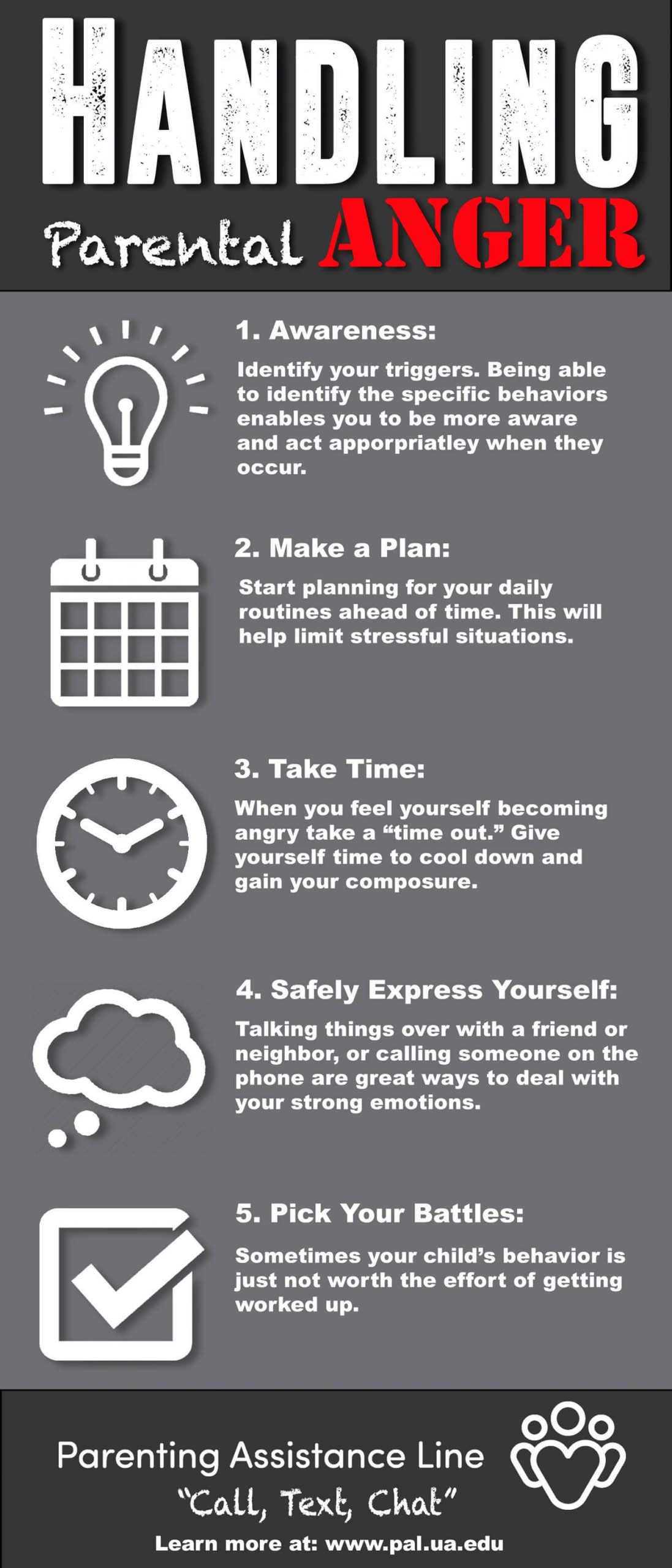Recognize your Feelings and Find Appropriate Ways to Respond
Our children bring us great joy. And yet there are times when parents experience anger and frustration. Parenting is tough and it is normal to feel angry at times. First, learning to recognize and being aware of these feelings then finding the most appropriate ways of responding are key to safe and effective parenting.
- Awareness: Think about the times when you find yourself getting angry with your children. Does it happen when your child talks back, doesn’t listen, whines or is fussy? Difficult times may be at different times of the day such as before naptime or bedtime, before a meal or early mornings when family members are trying to get ready. These are called “triggers” or “hot spots”. Being able to identify the specific behaviors enables you to be more aware and then act appropriately when they occur.
- Make a plan: Are your mornings extremely stressful? Try to prepare the night before to lessen the stress. Making lunches, laying clothes out and having a nightly routine all help make the mornings run smoothly. If the hour before dinner is a stressful time, plan ahead for a specific activity to engage the children or ask them to help with the dinner preparation.
- Take Time: When you feel your anger building, make sure your children are safe, and then take a short “time out” for yourself somewhere close by. Give yourself a few minutes to calm down and gain your composure. It’s okay to admit you are angry and need some time. Counting to 10 and deep breathing is also helpful. Remember, this is only for a couple of minutes and when you’re certain your children are safe!
- Safely Express Anger: Talking things over with another adult like a friend or neighbor or calling someone on the phone are great ways to deal with your strong emotions. Hearing someone’s calming voice can be very soothing and can be helpful in calming yourself. Handling your emotions in a mature way is also very beneficial for your children. They will model your behavior, therefore learning how to handle their own emotions safely.
- “Pick your battles:” Sometimes your child’s behavior is just not worth the energy and effort of getting so worked up. In the grand scheme of things, a jacket dropped on the floor on occasion may drive you crazy, but may not be something to “battle” over.
- Handling anger towards your children appropriately is critical in establishing healthy relationships between you and your child. If you find your emotions difficult to handle on your own, then seek the help of someone else such as your health care provider, mental health professional, or a parenting line like PAL that can help you find the resources you need. Happy, healthy parents are the foundation of a strong and successful family unit! Take the time to know what triggers your anger and learn appropriate ways to deal with your frustrations. In the end, you will be glad you did!







